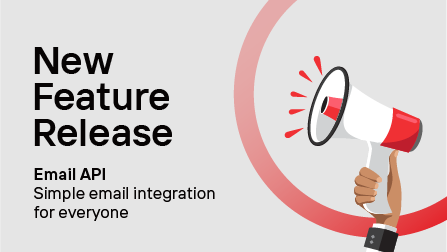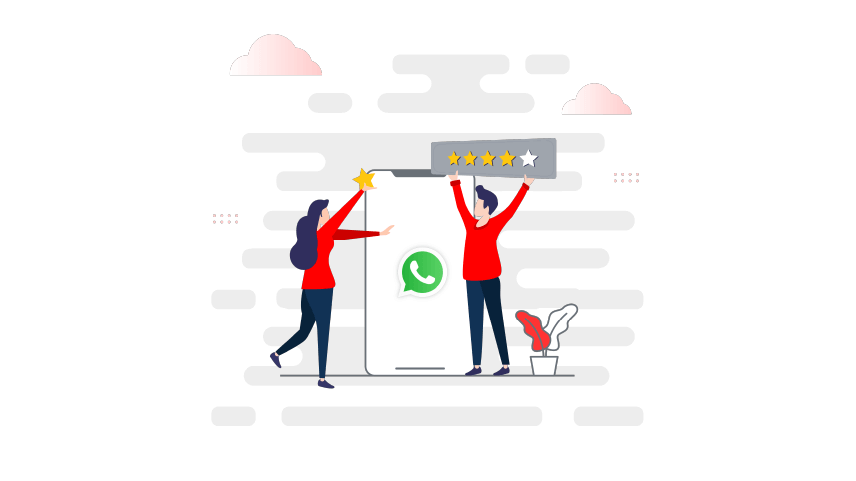Brands seeking to connect and engage their customers now have a new opportunity with mobile messaging. When it comes to mobile chatting platforms, WhatsApp is the undisputed leader.
WhatsApp is used by over two billion people spread across 180 countries (with a billion people using the app every day). The messaging platform also leads the pack when it comes to group messaging and one-to-one chatting.
It’s perfect for customer engagement as people across cultures and generations prefer to use WhatsApp over email and phone calls:
- Millennials – 65%
- GenXers – 65%
- Boomers – 63%
WhatsApp is also the go-to messaging platform in Brazil, with over 120 million users per day and India with 400 million users. According to Statista, the messaging platform is also used by 40% of the Indonesian population and 73% of the Saudi Arabian population.
What does all this mean?
Businesses can no longer ignore the opportunities presented by WhatsApp for Business API because that’s where their target audience engages with each other and their favorite brands. Furthermore, it will help strengthen brand presence and credibility.
WhatsApp API is now critical to engagement throughout the customer journey, as research suggests that 67% of users will message companies more over the next two years. Another 53% are more likely to shop at a business that they could contact via the platform.
How do enterprises leverage WhatsApp for Business API across the customer journey? Let’s take a look.
Customer Journey: Consideration
In a fiercely competitive marketplace, brands have a better chance of building an authentic direct connection to the customer through messaging apps. Although email was used extensively for this purpose, it’s no longer suitable for today’s tech-savvy audience.
According to Facebook for Business (WhatsApp’s parent company), 7 in 10 companies think they’re effectively engaging with their customers. However, only 2 in 10 customers agreed. WhatsApp promises to bridge this gap.
Chatting platforms can help you make more meaningful connections and build brand loyalty. Research suggests that as much as 35% of users want to ask businesses a question. Another 33% want to ask about store hours, inventory, or location.
When your customers initiate the conversation, businesses have an opportunity to engage and convert.
Customer Journey: Conversion
Research suggests that 64% of users prefer to communicate with a business via messaging because it’s easy, and they’re already spending a lot of time using the app. So it makes sense that another 34% stated that they would make or confirm an appointment via the app.
WhatsApp Business API can be easily integrated into your enterprise infrastructure and CRM systems. What’s more, you can leverage artificial intelligence (like chatbots) and automation to engage with your audience.
In this scenario, when a customer contacts you to make or confirm an appointment, smart algorithms can immediately respond and schedule an appointment or confirm it without any human intervention.
Research also suggests that 33% of users would prefer to purchase products over the messaging application. Again, through seamless integration with e-commerce platforms, this can be achieved cost-effectively with zero human intervention.
However, when questions or the purchase process gets complicated, you can quickly escalate it to a human customer service representative that can continue to engage them via the messaging app.
Customer Journey: Connection
Once the transaction is complete, WhatsApp can help build customer loyalty by maintaining strong connections. Research suggests that 30% of users would like to review and provide feedback about a business.
Whenever this is the case, it creates an opportunity to keep the conversation going. It also creates opportunities to cross-sell, up-sell, and more.
In Singapore, friction within the customer journey costs businesses as much as $4 billion in lost opportunity annually. As WhatsApp Business API can be connected with other enterprise systems, you’ll be better placed to enhance customer experiences while reducing (or even eliminating) friction.
So if you think this approach to customer engagement is right for you, here’s what you need to do:
- Start with a clear business goal and formulate a strategy to achieve it. Ask yourself questions like, what problem am I trying to solve with this technology? What kind of customer conversations do I want to engage in?
- When your WhatsApp-powered communications solution is live, it’s critical to ensure that it runs smoothly. Partnering with an established communication technology provider to achieve seamless integration will help overcome these challenges.
- Explore the potential of WhatsApp Messaging across the funnel. Identify the steps you can take to eliminate friction and improve customer satisfaction.
- Once your WhatsApp Business API has successfully engaged your target audience across the customer journey, continue to measure, test, and refine the process. This approach will help you evolve with the rapidly changing demands of the marketplace.
CEQUENS Can Help
We're leading Communication Platform as a Service (CPaaS) provider in the Middle East and Africa (MEA) region that aims to bridge communication gaps in a communication-driven world.
Powered by innovation and guided by a Cloud-First and Mobile-First approach, we provide omnichannel communication services and APIs that enable enterprises and developers to communicate with their customer base worldwide.
As an Endeavor Entrepreneur and GSMA associate member, CEQUENS plays a pivotal role in transforming communication in the region.
CEQUENS proprietary, PCI/DSS compliant Communication Platform leverages the latest cloud technologies and features a comprehensive portfolio of products and solutions that are industry-focused, agile, scalable, and cost-effective.



